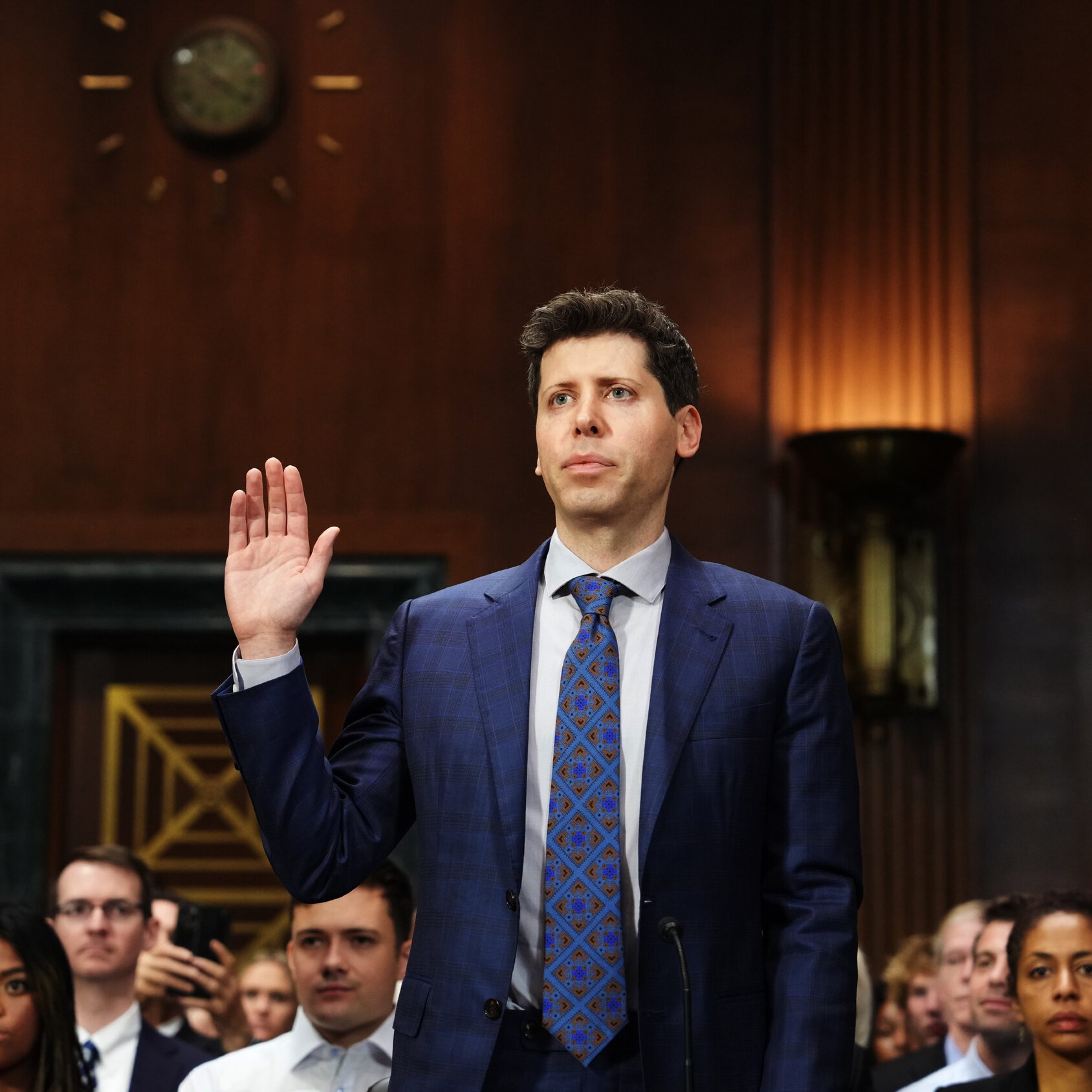In a candid exchange at an Intel event, OpenAI CEO Sam Altman reiterated the imperative for regulatory oversight in the realm of artificial intelligence (AI), emphasizing the critical role of governments in shaping frameworks to mitigate potential risks. Altman’s remarks come amidst escalating projections regarding the expansive demands for AI infrastructure and computational resources, raising pertinent questions about the trajectory of AI development and its broader societal implications.
Sam Altman dismisses $7 trillion AI infrastructure reports
OpenAI CEO Sam Altman addressed an audience at an Intel event, engaging in a lively discussion with Intel CEO Pat Gelsinger on the future trajectory of AI development and its associated challenges. Contrary to recent reports suggesting a staggering $7 trillion investment requirement for AI infrastructure, Altman debunked the figure, attributing it to an unsubstantiated claim from an anonymous source.
Expressing skepticism regarding the accuracy of such estimations, Altman underscored the need for reliable data and transparent discourse in navigating the complexities of AI expansion.
Despite acknowledging the significant costs associated with scaling up data centers to accommodate the anticipated surge in AI applications, Altman refrained from endorsing specific figures, highlighting the inherent uncertainties in forecasting infrastructure expenditures amidst rapidly evolving technological landscapes.
Altman elucidated the intricacies involved in projecting the financial outlay for AI infrastructure, emphasizing the dynamic nature of technological advancements and market dynamics. Recognizing the nuanced interplay between supply and demand factors, Altman emphasized the importance of adopting a pragmatic approach towards resource allocation, leveraging cost-effective solutions to maximize operational efficiency.
By dispelling misconceptions surrounding the purported $7 trillion investment requirement, Altman sought to foster a more nuanced understanding of the economic imperatives driving AI development, steering the discourse towards evidence-based analysis and informed decision-making.
Emphasizing the imperative of government involvement in AI regulation
Throughout the conversation, Altman reiterated the imperative for governmental intervention in formulating regulatory frameworks to govern AI development and deployment. Citing the multifaceted challenges posed by AI technologies, including concerns related to privacy, security, and ethical implications, Altman underscored the need for proactive measures to safeguard against potential pitfalls.
Emphasizing the diverse approaches adopted by various governments in addressing AI governance, Altman advocated for collaborative efforts aimed at fostering responsible AI innovation while mitigating associated risks. Drawing parallels with past technological advancements, Altman highlighted the critical role of governmental oversight in ensuring the equitable distribution of AI benefits and the prevention of societal harms.
Altman elaborated on the complexities inherent in devising effective regulatory mechanisms for AI, emphasizing the need for adaptive governance frameworks capable of accommodating rapid technological advancements. Highlighting the iterative nature of regulatory processes, Altman stressed the importance of continuous dialogue between policymakers, industry stakeholders, and civil society to address emerging challenges and refine regulatory strategies. By championing a holistic approach towards AI governance, Altman sought to catalyze collaborative efforts aimed at fostering a conducive ecosystem for responsible AI development, thereby mitigating potential risks and maximizing societal benefits.
As AI continues to permeate various facets of human existence, the discourse surrounding its governance and ethical implications becomes increasingly imperative. Altman’s advocacy for government involvement in shaping AI regulatory frameworks underscores the intricate interplay between technological progress and societal responsibility.
However, amidst the optimism surrounding AI’s transformative potential, lingering concerns persist regarding its unforeseen consequences. How can stakeholders reconcile the need for innovation with the imperative of safeguarding against potential risks? The trajectory of AI development hinges not only on technological advancements but also on robust governance mechanisms designed to uphold ethical standards and protect societal interests.





